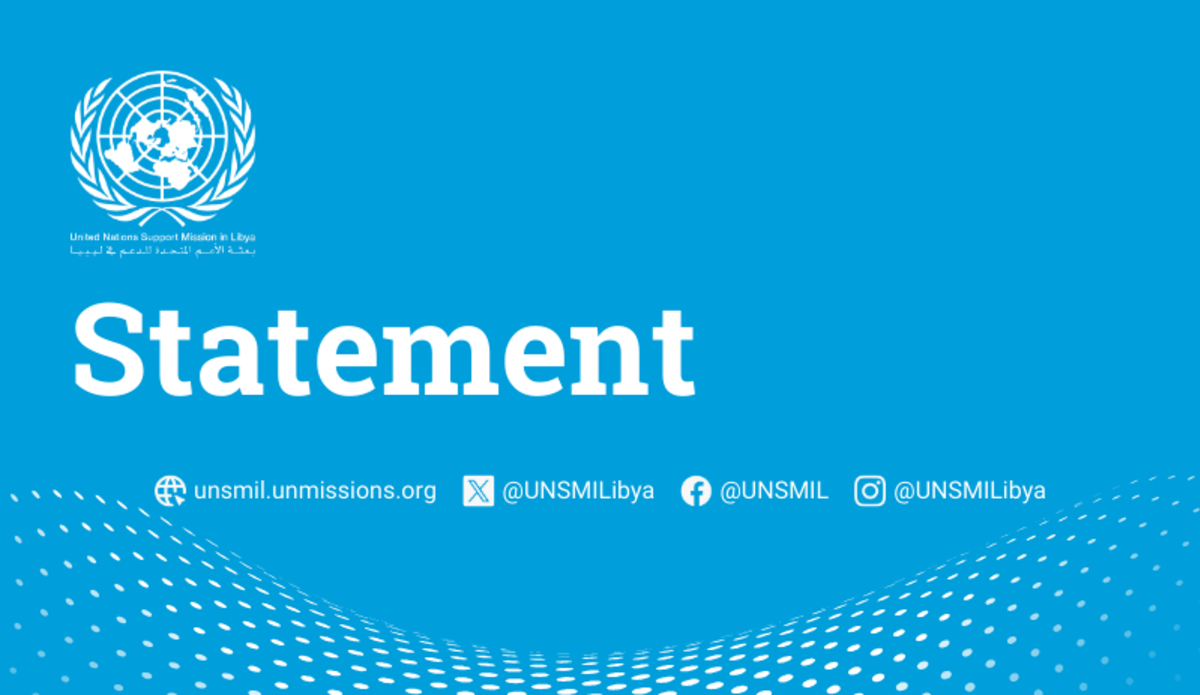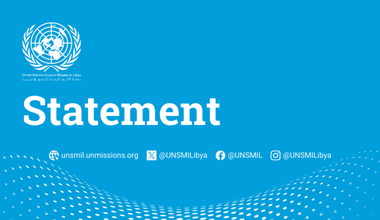UNSMIL urges parties to set aside blame and agree on urgent measures to stabilize Libya’s economy
UNSMIL is concerned about Libya’s worsening economic situation and the exchange of divisive, politically based accusations about responsibility for it, following the Central Bank of Libya’s devaluation of the Libyan dinar and its explanatory statement of 6 April. The Mission urges all parties to prioritise the national interest, set aside blame and agree on urgent measures to stabilise the national economy. Swift action is essential to reduce the negative impact on the Libyan people, including rising costs of living, declining purchasing power and the erosion of public trust in state institutions and leaders.
The Mission considers the widening foreign exchange deficit, excessive cash injection into the Libyan market, dual spending, and the continued depreciation of the currency as clear warning signs of mounting macroeconomic instability. These domestic pressures are further exacerbated by increasing global economic uncertainty and the real, pressing concern of declining oil prices.
Authorities must agree on a unified national budget, ensuring transparent financial management, and strengthening accountability within governance structures. UNSMIL stands ready to facilitate talks on a unified budget and relevant matters. Equally vital is the protection and empowerment of Libya’s oversight institutions, whose independence and integrity are increasingly threatened by political interference and security intimidation.
Good governance, transparency, and accountability must be at the core of Libya’s path toward economic recovery and sustainable development in a growingly vulnerable global market. Any economic reform must be responsive to the needs of the Libyan people, ensuring that stability and prosperity are not just macroeconomic goals but realities felt across all communities.
Libya’s economic issues underscore the pressing need for all parties to commit to meaningfully engage in the political process to end the stalemate and establish a unified government in accordance with the will of the people. Without addressing the persistent political instability, Libya’s economic progress will remain fragile, and its long-term stability will continue to be undermined by repeated cycles of disruption.
 United Nations Peacekeeping
United Nations Peacekeeping UN
UN









